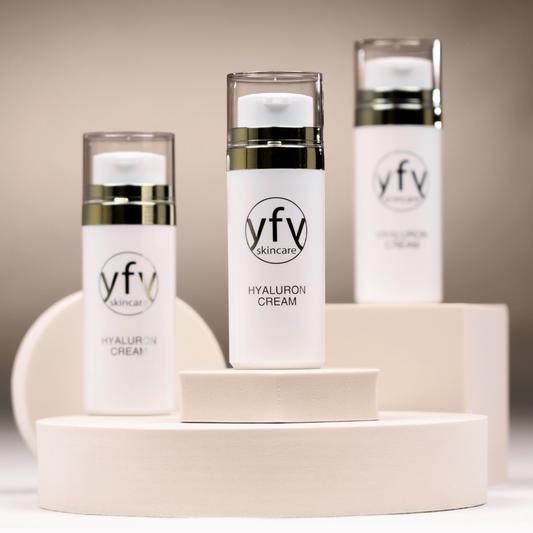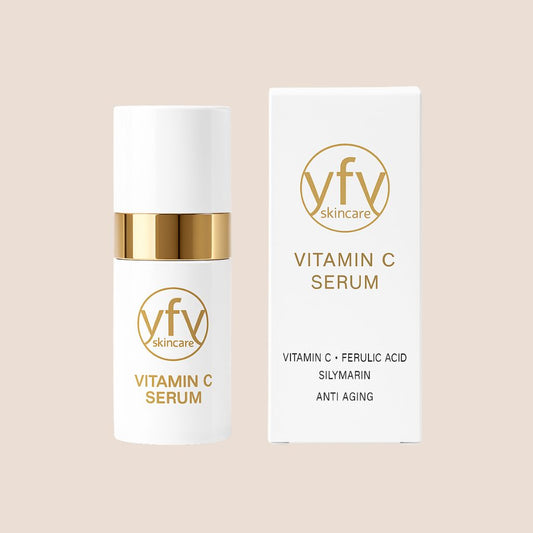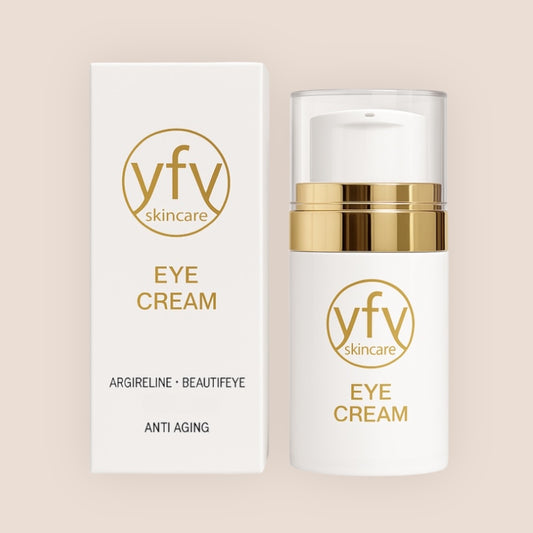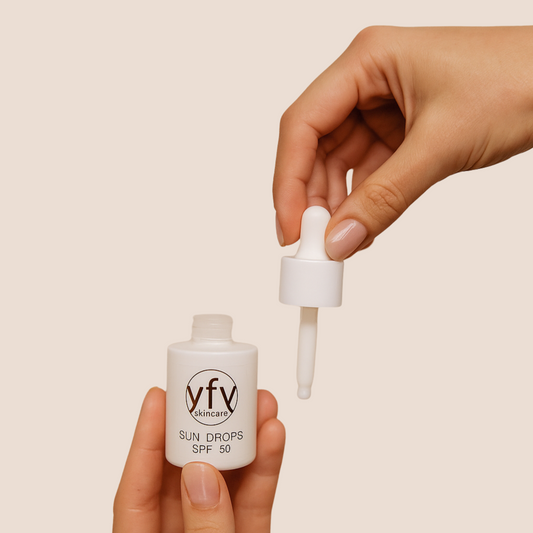
Vitamin C in skin care: An all-rounder against skin aging
shares
The rising star: Vitamin C
Vitamin C is not only a well-known antioxidant that we mainly know from our diet, but also a key ingredient in skin care that is effective against skin aging. In recent years, vitamin C has gained enormous importance in the beauty world. But what is really behind this active ingredient? And why is it so effective against skin aging? In this article, we'll clarify exactly these questions and show you how you can get the most out of vitamin C for your skin.
What is Vitamin C?
Vitamin C, also known as ascorbic acid, is a water-soluble vitamin found in many foods, especially citrus fruits, berries, and vegetables. It is an essential vitamin that the body cannot produce itself and therefore must be obtained through food. But not only internally, but also externally it can do wonders for the skin.
What effect does vitamin C have against skin aging?
Vitamin C is a powerful antioxidant. This means it protects the skin from free radicals that are caused by pollution, UV radiation and other factors and can contribute to skin aging. But that is not all! Vitamin C has the following effects on the skin:
- It promotes collagen production, helping to keep skin firm and youthful.
- It reduces the appearance of dark spots and improves skin tone.
- It supports the skin in repair and regeneration.
- It moisturizes the skin and protects it from drying out.
How is vitamin C used?
To benefit from the beneficial effects of vitamin C, it should be applied to the skin regularly. It is important to choose a high-quality product and use it as part of your daily skin care routine. Apply the vitamin C serum or cream to cleansed skin in the morning and evening and allow it to absorb well. Sunscreen should always be applied afterward, as vitamin C can make the skin more sensitive to light.
What should you pay attention to when buying vitamin C?
When choosing a vitamin C product, you should pay attention to the concentration and formulation. A well-formulated product should contain a concentration of 10% to 20% vitamin C. It is also important that the product is delivered in opaque packaging, as vitamin C is light sensitive and may lose its effectiveness if exposed to light.
Who is vitamin C suitable for?
Basically, every skin type can benefit from vitamin C. It is particularly suitable for people who want to combat signs of aging such as fine lines, wrinkles and age spots. But vitamin C can also work wonders for uneven complexion or dull skin. However, it is always advisable to do a skin test or consult a dermatologist before using any new product.
The perfect combination: vitamin C and hyaluronic cream
While vitamin C firms and protects the skin, it always needs sufficient moisture after use. This is where our hyaluronic cream comes into play. Hyaluronic acid is known to bind large amounts of water and thus deeply hydrate the skin. Our hyaluronic cream offers the perfect finish after using vitamin C. Because: The best active ingredient is ineffective if the skin is not moisturized. Therefore, we recommend always using our hyaluronic cream after applying vitamin C to achieve optimal results.
Overall, vitamin C can be a real game-changer in your skincare routine. Combined with our hyaluronic cream, you can optimally care for and protect your skin and thus maintain a radiant, youthful complexion.
Conclusion
Vitamin C is more than just a vitamin – it is a powerful anti-aging tool. Its antioxidant properties and ability to deeply nourish the skin mean it can significantly improve the appearance of your skin. Use it in combination with our hyaluronic cream to give your skin the ultimate care.



